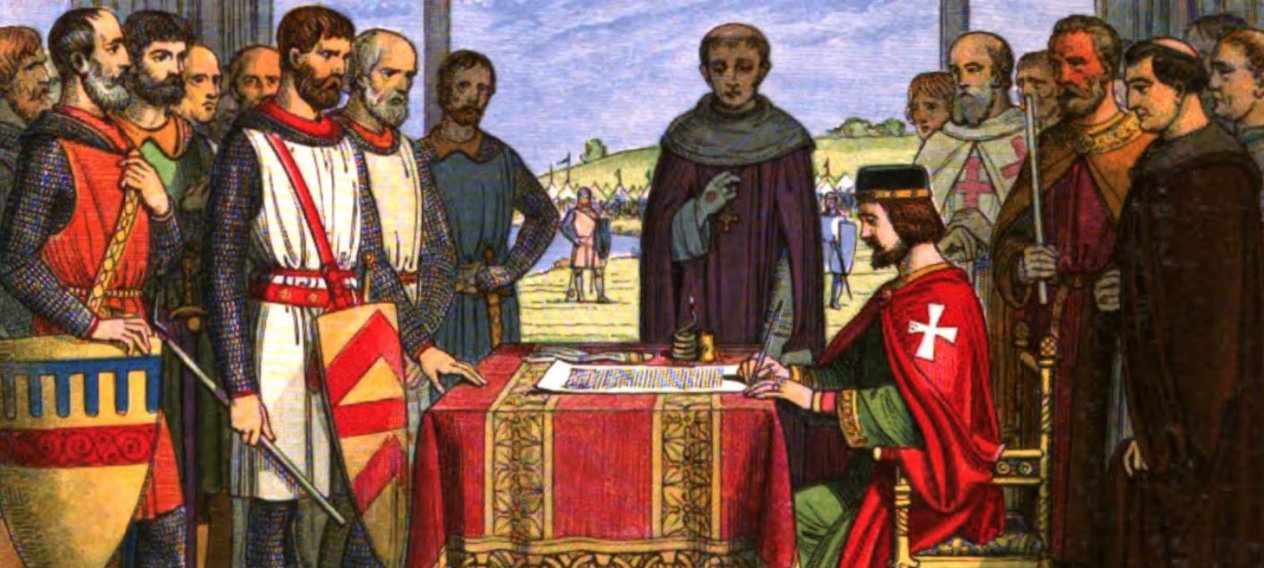King John signs Magna Carta in 1215
While some have argued that the lockdown of civilian life itself was illegal, as it applied Public Health regulations aimed at the sick to the healthy majority of the population, churches also have a strong legal precedent to govern themselves.
Magna Carta declares that the “English Church shall be free”, yet the government closed them from Mothering Sunday, 22 March, forcing Easter, Passover and Pentecost ‘online’.
King John “granted to God, and by this our present Charter have confirmed, for Us and our Heirs for ever, that the Church of England shall be free, and shall have all her whole Rights and Liberties inviolable.”
And although churches may enjoy limited opening from 4 July, many are focussed on rigid adherence to government ‘advice’ such as avoiding singing in choirs.
Pastor Ade Omooba MBE, co-founder of Christian Concern and one of 25 prominent church leaders who signed a letter to the government in May, said:
“The government should never have criminalised Christian worship and ministry. Churches were put in the extraordinary position of being allowed to run food banks whilst facing the risk of criminal sanctions for offering in-person prayer ministry. We are pleased that as a result of our discussions and legal action the government has backed down, issuing advice to churches rather than legally enforceable regulations.”
The Christian Legal Centre, which commissioned its own report by an environmental biologist (he found the closures ‘bizarre’) is pursuing its case against the government, in order to ensure that forced closure, with the threat of criminal sanctions, is not repeated.
Rev Dr Joe Boot, head of public theology at Christian Concern, writes, “Will we simply leave every law or regulation unchallenged and accept an indefinite lockdown that might well be repeated, based on the judgement of government bureaucrats?”
With power to close districts being devolved to local authorities, this is especially apt.


